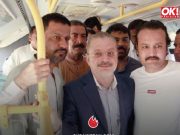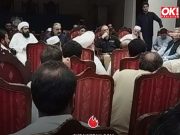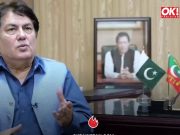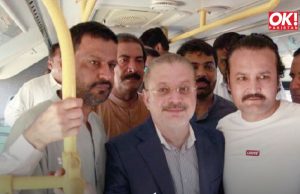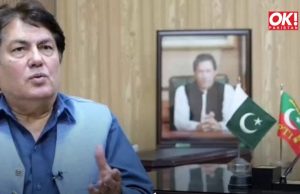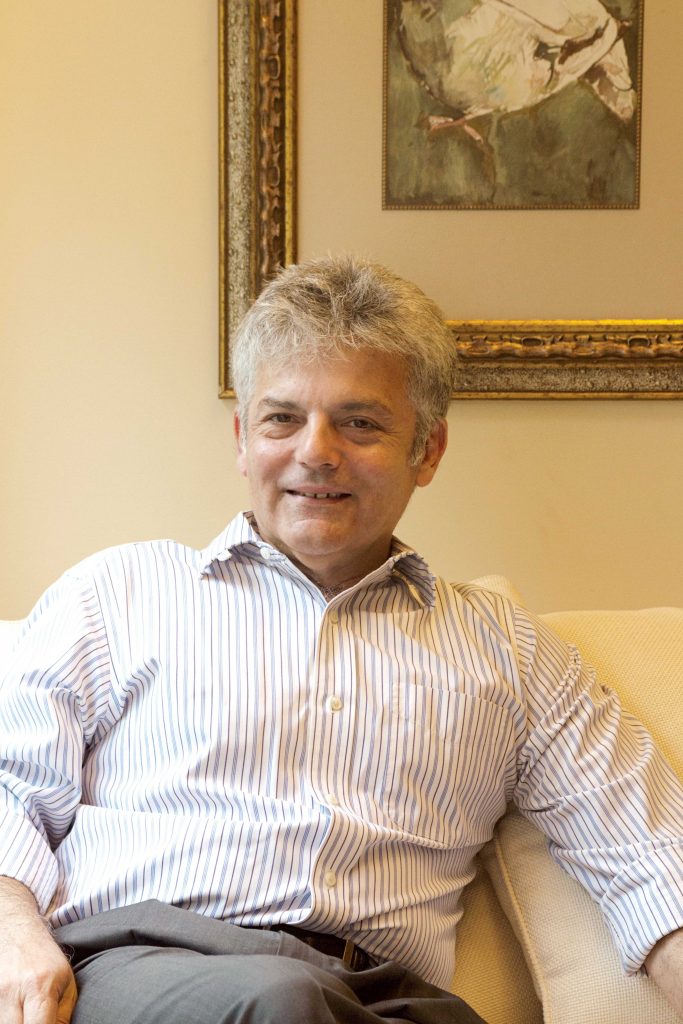
Renowned cosmetic surgeon Tahir Shafi speaks to OK! Pakistan about the growth of cosmetic surgery within Pakistan, the stigma surrounding plastic surgery, the procedures that are most in demand and the precise skill required to ensure a pleasing result.
When did you decide on a career as a cosmetic surgeon and how did you go about achieving this?
Tahir Shafi: In medical school I was lost until I found plastic surgery! In essence, I am a plastic surgeon which means I have trained in reconstructive as well as cosmetic surgery. Over the years, the balance has shifted significantly but by no means completely, towards cosmetic surgery. In the early part of my career, I enjoyed the thrill of reconstruction more but with the passage of time I have embraced a more sophisticated aspect of cosmetic surgery.
What is your definition of beauty?
TS: My personal definition is anything that is pleasing to the eye. With relevance to cosmetic surgery, I try not to inflict my definition but rather to elicit and then deliver what the individual wants.
How do Pakistanis define beauty in your opinion?
TS: I’m not sure I’m qualified to answer that. In my practice its not cut and dry but the majority would like to look younger and fitter.
Describe the patients you see in your practice.
TS: At the Aga Khan University they’re largely patients who need reconstructive surgery while at South City Hospital they’re usually patients who want cosmetic surgery. I offer most of the mainstream cosmetic surgery operations except for the nether regions. Most of my patients are direct referrals from other patients of mine and hence have an idea of what I do and can afford my work.
Do you get more female patients or male patients?
TS: Approximately 80% of my patients are women.
What procedures are most popular in Pakistan?
TS: We have no official figures but anecdotal accounts would suggest liposuction as the most common procedure. In my practice, rhinoplasty (nose job) and liposuction with or without an abdominoplasty (tummy tuck) are the are most sought after procedures though facelifts have shown an increase in the last couple of years too.
Describe these procedures and the risks involved, if any.
TS: To me, rhinoplasty is an operation to alter the shape of the nose to make it more pleasing – not necessarily beautiful. It’s a delicate procedure with a sharp (in more ways than one!) learning curve. Anyone with a realistic understanding of the degree of improvement possible can undergo the procedure. They should be aware of the fact that even when experts around the world perform this procedure, there is a 10-15% re-do rate with rhinoplasty. Liposuction is the removal of some of the excess fat below the skin using small incisions. Ideal candidates for this are people who, despite watching their diet and exercising, are unable to shift unsightly bulges. Classically it is a re-shaping and not a weight-reducing manoeuvre. Unfortunately, however, it is often thought to be the latter according to fly-by-night operators. The procedure is relatively simple to perform but can have serious complications. Anyone seeking cosmetic surgery should satisfy herself/himself as to the credentials and ability of the surgeon. One way to reduce but not eliminate the risks, is to only go to registered members of the Pakistan Association of Plastic Surgeons.
What is your focus during a patient’s initial consultation?
TS: My focus is on trying to get to know the patient a little during the initial interaction – amazing how much one can learn from chit chat. Over the years, I have come to realise and strongly believe that plastic surgeons have to be “psychosurgeons” – especially if they want untroubled longevity and prosperity in their careers. Patients have the right to choose their surgeon but this choice cuts both ways. Potential patients may have unrealistic expectations and a lack of clarity of what the procedure entails with all its pros and cons. A clear and straightforward discussion may result in that patient being turned away.
How do you feel Pakistanis perceive plastic surgery?
TS: The stigma persists that plastic surgery is somehow unnecessary or superfluous. The debate is a real one but only those who have first-hand experience of how one can suffer with a physical blemish – at best, impacting the quality of life and at worst, leading to mental health issues – know the benefits of cosmetic surgery. It may not be for everyone but slowly the tide is turning, even from ten years ago, as more and more reap the benefits.
What is your favourite procedure to carry out?
TS: I’m lucky in that I love what I do – even after all these years nothing is a bore or done by rote. The spectrum is huge in my chosen field. Having said that, I love working on the face, and if I had to pick one procedure, it would have to be a tough rhinoplasty.
Will a minor change make a difference in the overall balance and attractiveness of a patient’s face?
TS: It all comes back to the eye of the beholder and knowing your patient. That minor change could be perceived as monumental. Fundamental to an understanding of cosmetic surgery is to know the close-knit interplay between the physical and mental/emotional.
How do you deal with a patient who is not satisfied with the ultimate results?
TS: This goes to the core of the practice of cosmetic surgery. Thankfully I have very few unhappy patients. Over the years my skills have gotten better, and I am now almost always able to deliver, what I described pre op and set out to do pre op. I’m sure it smacks of arrogance but when one takes a knife to another for an agreed fee, it requires huge self belief to be able to deliver. I am my hardest task-master and at times I still find myself coming up short of what I felt was possible. However, the major reason is that, without exception, my patients are made aware of the likely result and potential complications. Any mismatch between patient expectation and my predicted delivery results in no surgery. The variables are such that despite all the above, I do have the occasional unhappy result. The key here I have found is to be brutally honest to the patient and oneself. I have yet to come across anyone who doesn’t respond to that.
How do you handle the general issue of confidentiality?
TS: It’s the nature of the beast! Very few patients talk openly about having had cosmetic surgery, even if it’s a great result. One has to respect that and I got used to it a long time ago.
You have an excellent reputation as the top plastic surgeon in Pakistan in regards to the results you achieve and as a doctor who relates well with patients. Are you happy with what you have accomplished over the years?
TS: Honestly, I don’t think I’m the best in Pakistan. Plastic surgery here is a small pond and there are bigger fish. I love operating but I also love the interaction with the huge variety of people I get to meet. Unlike mainstream medicine and even reconstructive surgery, it’s not doom and gloom in cosmetic surgery. My persona changes in the clinic and I find myself in my element. I guess that rubs off on the patients. I’m happy with where I am today. I had greater ambitions and goals when I was younger but who is to say I won’t achieve them? As long as I remain young at heart!
INTERVIEW: ALYZEH RAHIM SHIRAZI
PHOTOGRAPH: ADEELA BADSHAH
![]()




